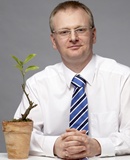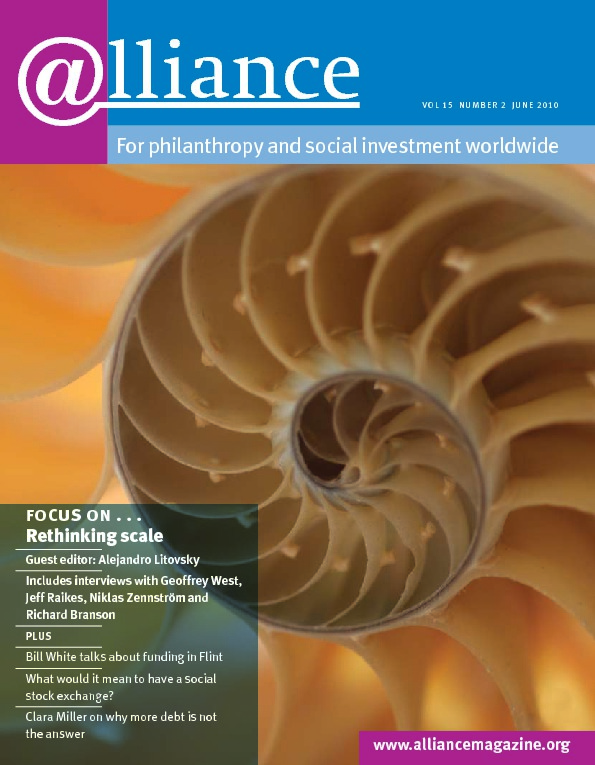In the business world, defining success is often the first step when developing a strategy or defining a new opportunity. In our field, trying to answer the question ‘what is success’ is key to how we work with donors. It brings us closer to the core of what philanthropy advice is and what dilemmas it faces.

Opinion columns are not teaching manuals. We would nevertheless like you to pause for a minute before you continue reading this article. Take a moment and think about your personal list of three to five components of success in the world of philanthropic advice. You may also want to add to the list the key words related to one success and one failure you have experienced.
Our guess is that among the successes listed, ‘scaling a project or organization’ will be one. A good ‘social return on investment’ will be another. A visible, positive ‘impact’ will certainly also be on the list. All of the above are categories of success. Categories that have a growing importance in philanthropy because of our growing reliance on tools and evidence. We believe that they miss a crucial aspect of what the field of philanthropic advice is about: the donor’s journey.
What do we mean? Three years ago we started to work with a donor who had just taken over her family’s foundation. She wanted to value the family’s heritage but was looking for her own way to interpret it. Her first funding went to a social entrepreneur who empowers low-income families. Why? Her mother had supported refugees and their families from eastern Europe and she was looking for new, more entrepreneurial ways to support disenfranchised children.
Three weeks ago we travelled with this donor to Canada because she wanted to move from just giving grants to actively transferring an educational project, with the help of her foundation, from Canada to Europe. On her journey as a philanthropist, she has started to become a social entrepreneur herself. As she says, the best thing in her life now is to be on this journey, connecting with professionals, achieving goals she has set herself, and experiencing measurable progress.
What is the added value philanthropy advisers bring in taking a donor on such a journey? Is it really the guiding and directing? We believe it is about creating opportunities to learn and facilitating a process. In this process it is our task to ensure a focus on:
- understanding the donor’s definition of success;
- developing an understanding of an organization, project or entire field;
- forming a close partnership between a donor and the organization ‘on the ground’;
- facilitating lessons from working with organizations in the field;
- structuring and supporting corresponding changes in the giving strategy;
- encouraging a multiplier effect in the social environment.
This process often does not start with theories of change, impact measurement systems or market analysis. For us, success is when we can initiate a conversation about family and personal values. These values are in the end the basis for a donor’s strategy.
Working on this basis we face a series of dilemmas. Sometimes donors are fixed on an idea they want to implement that we know might not be the best approach. Sometimes they underestimate the complexities of the sector and overestimate their ability to achieve change within a very limited time frame – and sometimes with very limited means. Sometimes we also would like to point right away to our favourite cause or the not-for-profit we love. In facilitating such processes we need to be transparent in regard to our opinions, preferences and experiences. Advising just for advising’s sake is something we need to avoid. Success also means, for us, saying ‘no’ to a mandate if donor and adviser do not find a common language of trust.
The better we become at helping donors to develop a personal giving strategy, the smaller the demand for our services may possibly become. True, as donors supported by us find fulfilment in their philanthropy, they will willingly recommend our services to others. But they will also start to support and ‘train’ their friends and their family and maybe their friends’ friends in their own philanthropy. Without establishing a formal organization they, in a sense, will become philanthropy coaches to their peers. Even if this is not what most of us would like to hear, the biggest success in philanthropy advice is when donors don’t need our services any longer. Our quest needs to be to support this kind of change in the world of giving.
Felicitas von Peter and Michael Alberg-Seberich are executive partners at Active Philanthropy. Emails alberg-seberich@activephilanthropy.org and vonpeter@activephilanthropy.org


Comments (0)